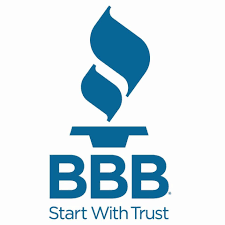BBB: Tips for donating toward Maui Wildfire Relief
Published 9:02 am Thursday, August 24, 2023

- To learn more about sweepstakes scams and how they work, see BBB’s study on these scams at BBB.org/ScamStudies. If you’ve been the victim of a scam, please report it to www.BBB.org/ScamTracker. By sharing your experience, you can help others avoid falling victim to similar scams.
It’s been heartbreaking to see the devastation left behind by wildfires in Maui, Hawaii. Amid evacuations, residents are receiving advice on what they can do to protect themselves and their homes. In the meantime, we encourage donors who want to offer support of Maui relief efforts to please give, but give wisely.
BBB offers the following tips to help as you consider your contributions to Maui relief efforts:
Research before giving: Visit Give.org to verify if a charity meets the BBB Standards for Charitable Accountability. Take the time to find out how the organization plans to address either immediate or long-term needs. The first request for a donation may not be the best choice. Be proactive and find trusted charities. (Below you’ll find the names of several organizations that meet all BBB Standards for Charitable Accountability and are focusing efforts on the needs in Maui).
•Review clarity of disaster relief appeals.
•Seek out appeals that are upfront and clear about what disaster relief services you are supporting.
•Look for experience in disaster relief.
•Support experienced organizations that stand ready to provide quick and effective assistance. Be cautious of organizations that form overnight in the wake of a disaster. Also consider whether the relief organization already has an established presence near the location of the disaster.
•Donate money rather than goods.
Donating money is the quickest way to help and provides charities the flexibility to channel resources to impacted areas. Instead of donating food, consider supporting food banks near an impacted area. You can consider visiting Feeding America (a BBB Accredited Charity), which works with food banks across the country.
When considering support through crowdfunding, there’s several things to keep in mind:
•Give to people and organizations you know. It is safest to give to crowdfunding postings of people you personally know. If that is not possible, consider a posting that is being managed by an established charitable organization that can be checked out.
•Not all crowdfunding sites operate alike. Some crowdfunding platforms do a better job of vetting postings and projects that appear on their site than others. Review the site’s description of its procedures. If they do take precautions, they generally announce that fact loudly to help encourage giving.
•See if the posting describes how funds will be used. Vague descriptions of how the collected funds will be used should also be a yellow caution light. Thoughtful collections will take the added step of identifying and verifying needs before money is raised.
•Be wary of “100%” claims: Watch out for claims that 100% of donations will assist victims and/or their families. While a charity may be using other funds to cover administrative and fundraising expenses, that does not mean those costs don’t exist. See if the appeal includes an explanation about how this percentage is achieved.
•Online caution: Never click on links to unfamiliar charity websites or in text messages or emails. These may take you to a look-alike website where you will be asked to provide personal financial information or may download harmful malware onto your computer. Don’t assume that charity recommendations on social media have already been vetted.
•Don’t assume pictures represent an official connection to the person or family identified. Unfortunately, some crowdfunding postings may be using pictures of needy individuals without their permission. As a result, you can’t assume an official connection. Again, each site has different rules on what they allow.
•Your contribution may not be deductible as a charitable gift. If a crowdfunding posting is claiming to be helping a specific named individual or family, donors in the U.S. generally cannot take a federal income tax deduction, even if the individual or family is in need. See IRS Publication 526, for more information on this subject.
•Verify charity trustworthiness.
•Rely on expert opinion when it comes to evaluating a charity. We recommend giving to charities that meet all 20 BBB Standards for Charity Accountability, found at BBB’s Give.org.
•The following organizations are BBB Accredited Charities (i.e., meet the 20 BBB Standards for Charity Accountability) that are currently raising funds to assist Maui relief efforts. This list will be updated on give.org as more come to the BBB Wise Giving Alliance’s attention:
American Red Cross, Americares Foundation, Catholic Charities Hawaii, Direct Relief, GlobalGiving, MAP International, Matthew 25: Ministries, Maui Economic Opportunity, Operation USA, Salvation Army, United Way Worldwide, and World Vision.
—Kelvin Collins is president & CEO of the Better Business Bureau serving the Fall Line Corridor, serving 77 counties in East Alabama, West Georgia, Southwest Georgia, Central Georgia, East Georgia and Western South Carolina. This tips column is provided through the local BBB and the International Association of Better Business Bureaus. The Better Business Bureau sets standards for ethical business behavior, monitors compliance and helps consumers identify trustworthy businesses. Questions or complaints should be referred to the BBB at 1-800-763-4222, BBB.org or info@
centralgeorgia.bbb.org




